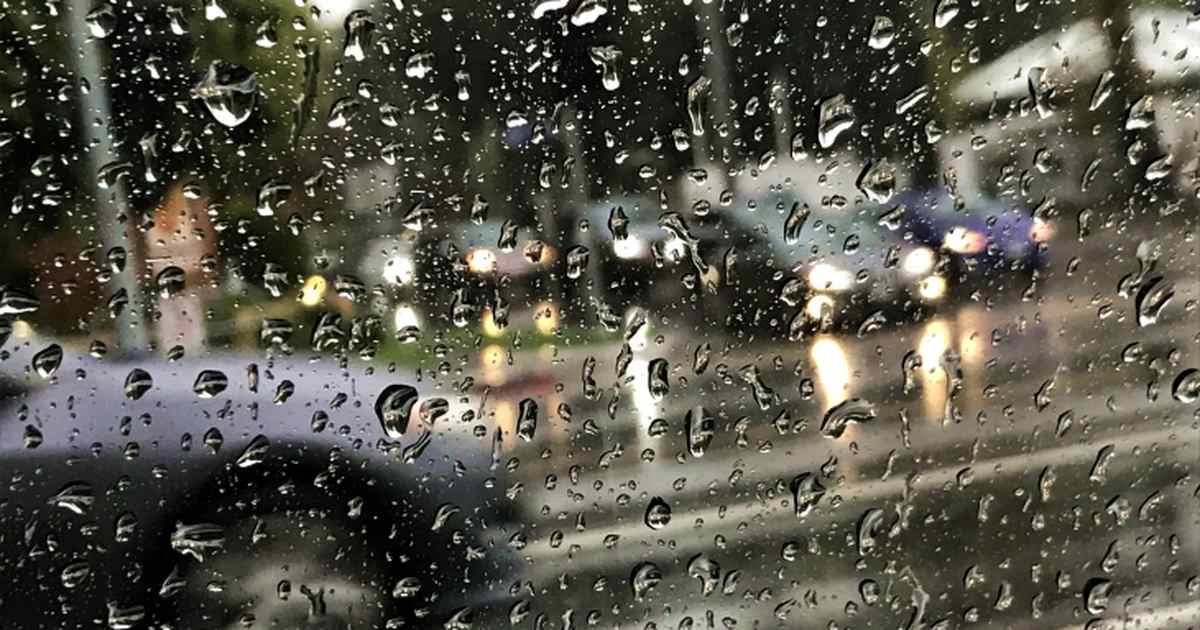When President-elect Barack Obama was preparing to enter office in the throes of the Great Recession, he faced a momentous decision before he even moved into the White House: How much money would it take to fill the hole Wall Street’s implosion and the collapse of the housing market had blasted through the economy? Christina Romer, then an incoming member of Obama’s Council of Economic Advisers, ran three estimates, and her analysis suggested that a stimulus package should be at least $1.2 trillion, if not larger, if Obama didn’t want unemployment to skyrocket.
But another confidant, soon-to-be-director of the National Economic Council Larry Summers, was worried the trillion-dollar figure would pop eyes and add dangerously to the deficit. When Romer, Summers, and other top advisers met with Obama to discuss what he should do, Summers only offered $550 billion and $890 billion options. “There was no serious discussion to going above a trillion dollars,” a participant in that meeting told journalist Ryan Lizza. In the end, the package Congress passed was worth $787 billion. It increased unemployment benefits by a mere $35 a week and, in lieu of direct stimulus checks, offered Americans a tax credit that did little to increase their spending. Much of the money wouldn’t even get out the door for another year or two.
Romer’s predictions eventually came true. The unemployment rate hit double digits by that October and wouldn’t fall to its pre-recession rate of 4.7 percent for another seven years, nearly a decade after the crisis began. Two years into the recession, hunger was still a third higher than it had been. Wage growth was sluggish for years afterward.
Then, about a decade later, a global pandemic hit. The federal response this time looked completely different. The government passed trillions of dollars in aid within weeks. According to Moody’s Analytics, “No other nation responded more aggressively to the pandemic than the U.S.” Instead of lawmakers fearing blowback for having done too much, the panic was whether the government might not do enough. The outcome has been an economic recovery the likes of which the country has never before seen.
Unemployment spiked to 14.7 percent in April 2020, but it was back down into single-digit territory within four months. Today, two years after the crisis began, the unemployment rate is below 4 percent and the economy is on track to recoup all jobs lost by the end of the year. The last two years have produced rapid wage growth, particularly for the lowest-paid workers—pay has risen 6.1 percent for jobs in the lowest half of the wage distribution over the last two years. Even in such a time of economic disruption, poverty fell to the lowest level on record in 2020. Food insecurity declined. The pandemic-induced recession lasted for just two fiscal quarters, the shortest recession on record.
Without robust federal action, Moody’s estimates that gross domestic product would have dropped three times further in 2020 and the U.S. would have experienced a double-dip recession in 2021. The country wouldn’t have regained all jobs lost until 2026, and unemployment would have been in double digits through most of 2021. Wage growth would have been at an all-time low. Instead of declining, poverty would have risen to the second-highest level on record.
“We avoided a lot of human suffering,” said Chuck Marr, senior director of federal tax policy at the Center on Budget and Policy Priorities. J.W. Mason, associate professor of economics at John Jay College and a fellow at the Roosevelt Institute, agreed. “It’s an enormous success story.”
The two economic crises, of course, were rooted in quite different causes. The Great Recession was spawned by the collapse of the financial sector and a housing bubble, which took time to ripple through the economy and eventually caused a decrease in people’s incomes, leading to a contraction in spending that resulted in an official recession. The pandemic created a recession by simply shutting much of the economy down entirely over the span of weeks.
Still, as with Wall Street’s meltdown, the pandemic had the potential to cause a downward economic spiral. At the beginning, experts debated whether the recovery would be V-shaped or L-shaped—whether the rebound would spring back quickly or drag on slowly for years. “There was nothing in the nature of the pandemic that would have prevented it from being the triggering event for a more rapid downturn,” Mason said. “The rapid bounce back we saw was not inevitable.” Had mass unemployment led to a huge loss of income, the crisis would have persisted as businesses that opened back up shut down all over again when customers failed to show up thanks to a lack of money in their pockets.
The real difference, instead, was the way the government responded. President Trump declared the country to be in a pandemic on March 13, 2020; by March 18, he had signed the Families First Coronavirus Response Act into law, and less than two weeks later he followed that with the Coronavirus Aid, Relief, and Economic Security Act. Combined, the two packages came to over $2 trillion in federal spending. The laws included $1,200 stimulus checks, a $600 per week increase in unemployment benefits that also expanded eligibility, more money for food assistance, and emergency paid leave. Congress then followed that up with the $900 billion Coronavirus Response and Relief Supplemental Appropriations Act in December 2020, and Democrats passed the $1.9 trillion American Rescue Plan Act in early 2021, which sent out another round of stimulus checks and expanded child tax credit payments. In total, Congress has approved over $5 trillion in aid over just the past two years, three times as much as during the entire Great Recession.
That kind of aggressive, quick action meant that even though an earth-shattering 23 million people filed for unemployment in one week of May 2020 alone—more than triple the highest number during the peak of the Great Recession—the government ensured that their incomes weren’t wiped out. As soon as the initial restrictions lifted, spending carried on, allowing many businesses to keep their doors open and payrolls intact. The emergency measures didn’t reach everyone: Undocumented immigrants weren’t eligible for much of the relief, and many people struggled to get the expanded unemployment benefits. The Black unemployment rate is still double the white rate. Even so, most Americans are actually better off financially now than before the pandemic began.
Even before the pandemic emerged, left-of-center economic experts and Democratic Party leaders had settled on a consensus view of history: The 2009 stimulus was too small and too short. “It is abundantly clear that Congress’s response in 2008, 2009, and 2010 was just too small and stopped too quickly,” said Rakeen Mabud, chief economist at the Groundwork Collaborative. Even if the Obama administration couldn’t have gotten a trillion-dollar-plus bill through Congress at the start, it could have made it clear that another would need to follow. Instead, by 2010 Obama’s White House had pivoted to deficit reduction. The federal government “went from being a tailwind to a headwind way too soon,” said Mark Zandi, chief economist at Moody’s Analytics.
One problem facing lawmakers in 2009 was that there was little recent experience with direct government spending in a time of crisis. When he was running for president, Bill Clinton proposed a big stimulus package to fight the recession that had begun in 1990, but he dropped it once in office at the behest of advisers promoting deficit reduction. “Fiscal policy was just dormant,” Marr said. Some doubted whether the federal government could get money out fast enough in a crisis—or whether it should at all.
In the decade between 2008 and 2020, both policy wonks and legislative leaders learned the lessons from the federal response to the Great Recession. Biden has admitted that the administration “paid a price” for not “taking a victory lap” over what it had done. The Obama-era advisers who argued for restraint have been replaced by far more left-leaning ones. Obama himself has seemed to understand in recent years that his administration’s policy response wasn’t enough. “I want candidates now to propose beyond what we were able to get done then, because the politics have changed,” he told the audience of a 2019 fundraiser. When Mason talks to young staff members on Capitol Hill, he said, “it just feels very different. It feels like they have really internalized this idea that the stimulus in 2009 was inadequate.”
The nature of the pandemic may also have greased the federal skids. The speed and severity of the emergency brought everyone to the table; up until the American Rescue Plan at the beginning of 2021, all of the pandemic aid packages passed with bipartisan support and were signed by Trump. While lawmakers were able to find scapegoats for the Great Recession—whether it was banks or underwater homeowners—the pandemic was no one’s fault and hit indiscriminately. Mass unemployment was the result of the government literally ordering people not to work for public health reasons. “The pandemic was a natural disaster,” Zandi said. “It was just very easy to see that the government should step in and support people’s incomes.”
That air of bipartisanship has since evaporated. The last stimulus package was passed purely on a Democratic Party line, and Republicans have grumbled about doing anything since. A lack of congressional action has allowed the expanded child tax credit and unemployment insurance payments to end, while emergency paid leave has long since lapsed, the eviction moratorium is gone, and rental assistance has mostly run dry. The economy, all experts agreed, is on sound footing as jobs and wages continue to grow. But hardship is returning: Child poverty increased dramatically in January without CTC payments, and evictions are rising in much of the country. Even as the omicron surge subsides, life is still not back to normal—and where it has returned to normal, destitution for vulnerable Americans is following on its heels.
Still, economic experts hope a key lesson from the pandemic holds for the next crisis: The federal government can, and must, step in during times of economic crisis to backstop Americans’ finances to prevent hardship and anemic growth.
That takeaway may be imperiled by today’s outsize focus on inflation. All the experts I spoke to, while acknowledging that inflation is a concern, believed it will still be short-lived. The question to ask is whether current inflation is worth the trade-off of having averted an ongoing recession. “In retrospect, if we could … get it exactly right so we don’t get a spike in inflation that would be wonderful, but we can’t,” said Dean Baker, senior economist at the Center for Economic and Policy Research. “So do you err on the side of too much or too little?” If the government hadn’t acted so powerfully it might have kept inflation in check, but it would likely have done so at the expense of higher unemployment, lower incomes, increased hunger, and “a long period of depressed growth and stagnation,” Mason said.
There’s a big risk that, as Americans look in the rearview mirror, they decide rising inflation was a sign that the government went too far. “My concern with the inflation debate is that we don’t let it overshadow … how effective this was,” Marr said. Democratic Senator Joe Manchin torpedoed the Build Back Better legislative package that was meant to be an investment in ongoing economic growth over, in part, his concern about inflation. “I don’t want the lesson next time to be, ‘Oh jeez, don’t do so much,’” Marr said. “That’s the wrong lesson. And people will be hurt by that.”
The country just lived through a real-time experiment in what happens if the government acts quickly and aggressively in times of economic crisis, and we found out that it works. Infrastructure was built to deliver new benefits—from stimulus checks and child tax credit payments to nonfilers to rental assistance that had never been offered before—that can be maintained or revived for the next time a crisis hits. “It did open a door that hadn’t previously been there” to aggressive federal spending in a crisis, Baker said. “You couldn’t even get Democrats to support something like that in 2009.” In 2020, both parties got behind it.
“We’ve demonstrated that when something goes wrong in the economy, when some part of the complex machinery goes down, it’s not necessary that people lose income,” Mason said. “Once you’ve shown it is practical, you can’t go back.”
Note: This article have been indexed to our site. We do not claim legitimacy, ownership or copyright of any of the content above. To see the article at original source Click Here












